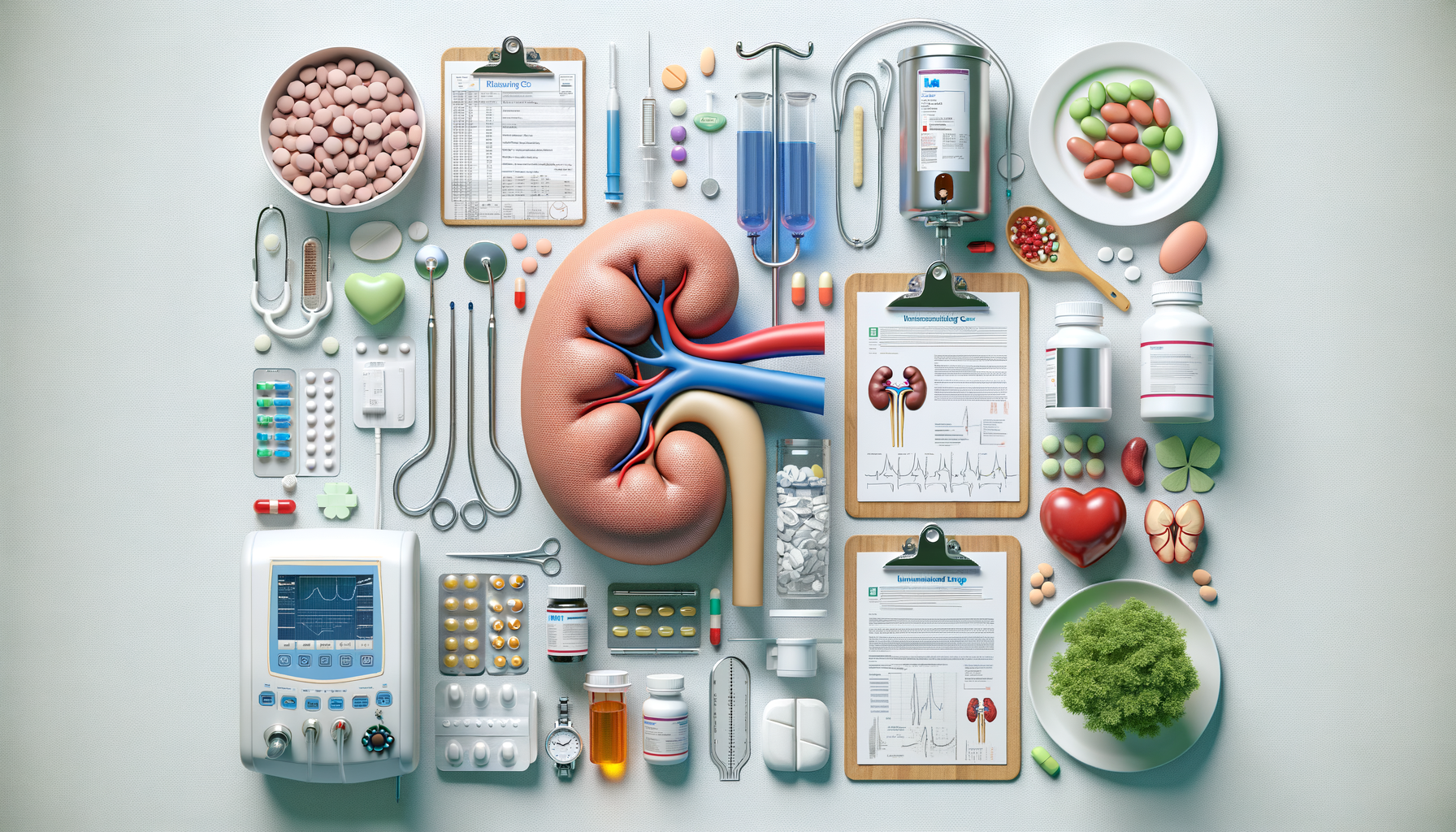Introduction to Kidney Health
The kidneys are vital organs responsible for filtering waste and excess fluids from the blood, maintaining a healthy balance of salts and minerals, and producing hormones that regulate blood pressure and control the production of red blood cells. Given their crucial role, maintaining kidney health is paramount for overall well-being. Unfortunately, kidney-related issues are on the rise globally, with millions affected by chronic kidney disease (CKD) and other renal disorders. Understanding the tools and treatment paths available for managing kidney health is essential for prevention and effective management.
Diagnostic Tools for Kidney Health
Early detection is a cornerstone in managing kidney health. Diagnostic tools play a crucial role in identifying potential issues before they escalate. Common diagnostic methods include blood tests, such as serum creatinine and blood urea nitrogen (BUN), which help assess kidney function. Additionally, urine tests can detect abnormalities like proteinuria, indicating potential kidney damage. Imaging techniques, such as ultrasound and CT scans, provide visual insights into the kidney’s structure, helping to identify blockages or abnormalities. These tools, when used regularly, can offer invaluable insights into kidney health, enabling early intervention and better management of potential issues.
Lifestyle Modifications for Kidney Health
Adopting a healthy lifestyle is pivotal in maintaining kidney health. Diet plays a significant role, with a focus on reducing salt intake, managing protein consumption, and ensuring adequate hydration. Regular exercise contributes to maintaining a healthy weight and controlling blood pressure, both of which are critical for kidney health. Avoiding smoking and limiting alcohol intake can also reduce the risk of kidney damage. Stress management techniques, such as meditation and yoga, can further support overall health, indirectly benefiting kidney function. These lifestyle modifications are not only preventive but also enhance the effectiveness of other treatment paths for those already diagnosed with kidney conditions.
Medical Treatments and Interventions
For those diagnosed with kidney conditions, medical treatments and interventions are often necessary. Medications such as ACE inhibitors and ARBs are commonly prescribed to manage blood pressure and slow the progression of kidney disease. In more severe cases, dialysis may be required to perform the kidney’s function of filtering waste from the blood. Kidney transplantation is another option for end-stage renal disease, offering a chance for a normal life, albeit with lifelong immunosuppressive therapy. Each treatment path is tailored to the individual’s condition, emphasizing the importance of personalized medical care in managing kidney health.
Innovative Technologies and Future Directions
The field of nephrology is witnessing significant advancements, with innovative technologies paving the way for improved kidney care. Wearable devices that monitor vital signs and provide real-time data on kidney function are becoming increasingly popular. Bioprinting technology is being explored for creating artificial kidneys, offering hope for those on transplant waiting lists. Additionally, research into regenerative medicine holds the potential to repair damaged kidney tissue, reducing the need for invasive treatments. These innovations, while still in developmental stages, promise to revolutionize kidney care, offering new avenues for treatment and management.
Conclusion: Empowering Kidney Health
Maintaining kidney health requires a multifaceted approach, combining diagnostic tools, lifestyle modifications, medical treatments, and embracing innovative technologies. By understanding these elements, individuals can take proactive steps to protect their kidney health, ensuring a better quality of life. As research continues to advance, the future holds promising possibilities for those affected by kidney conditions, empowering them with more effective and personalized care options.




Leave a Reply